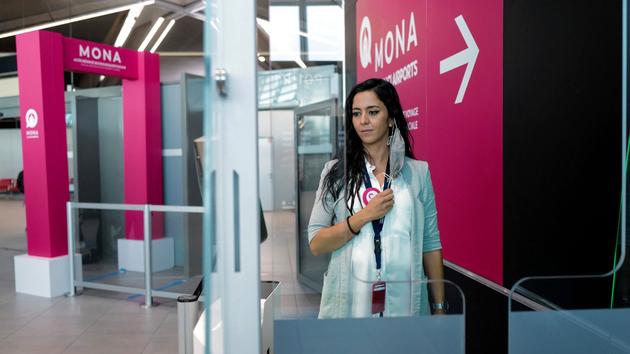Show your face to a camera to go through the boarding gates?
It has been possible since March 18 at Orly airport.
Postponed for a year due to the Covid-19 pandemic, this test currently only concerns Transavia flights to Morocco.
It will be extended in two months to Air Caraïbes passengers to the French overseas departments and territories.
For the airport, the use of facial recognition allows traffic to flow more smoothly and saves time for boarding.
Read also:
Facial recognition: for better or for worse
In fact, passengers must first scan their face on a special terminal, register their identity document and their plane ticket.
"At the baggage drop-off, the terminal will recognize the face of the traveler, who will only have to scan his baggage tag, place his suitcase on the carpet and that's it,"
says the airport group ADP.
Ditto at the boarding gate.
Under the General Data Protection Regulation (GDPR), travelers are not required to use this device.
"These data are automatically deleted as soon as the plane takes off",
ensures ADP.
At Lyon Saint-Exupéry airport, facial recognition has also been used since early October and for a year, with a slightly different system.
Developed by Idemia, the application called “Mona” accompanies certain passengers of the companies Transavia and Tap Air Portugal from the preparation of their flight until the takeoff of the plane.
In both cases, it is only a question of experiments.
France does not have a legal framework authorizing in principle the use of facial recognition.

